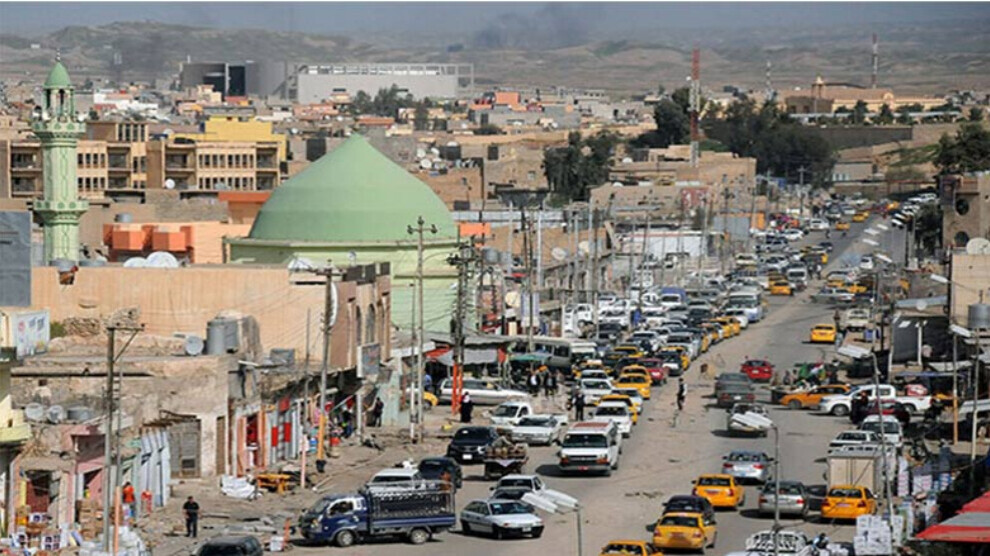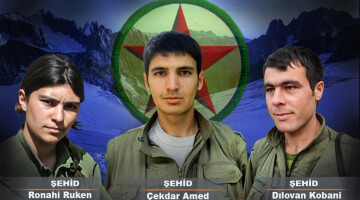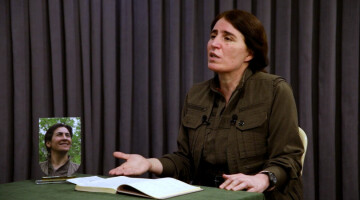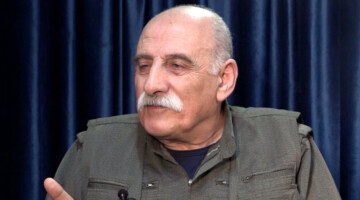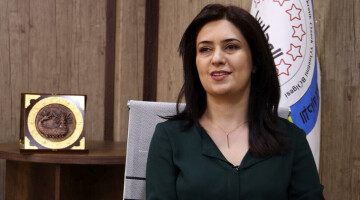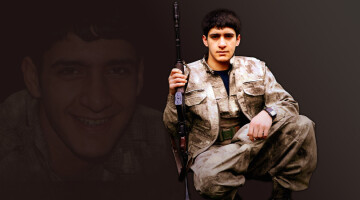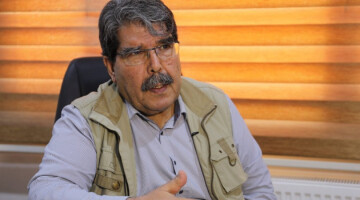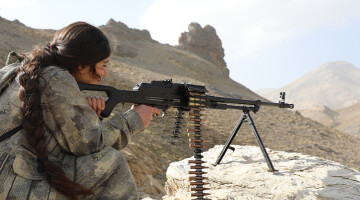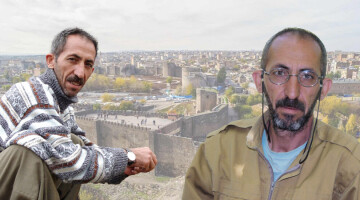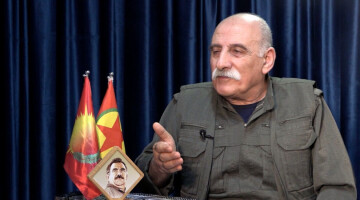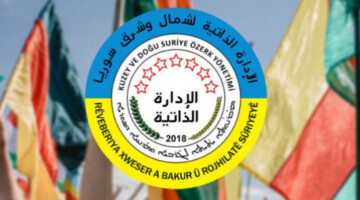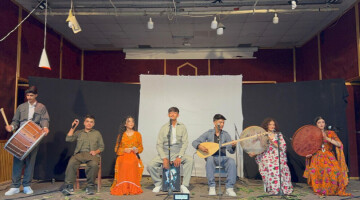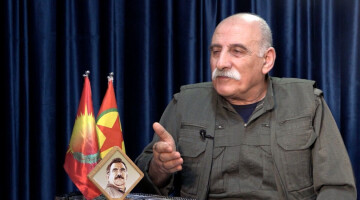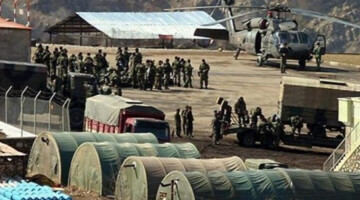One of the foundations of the chaos and war that has been going on in the Middle East for 100 years was shaped by the Treaty of Lausanne. Kirkuk, one of the main articles of the treaty, is still the scene of events within the framework of the agreements determined in those days. While the decisions taken about Kirkuk started on the basis of the framework of the current occupation of Kurdistan, Turkey, Iran, Iraq and other regional powers that have calculations over the region have not ended their search.
While the importance of Kirkuk in the region and its underground resources continue to whet the appetites of the sovereign powers, the power with a planned agenda and historical calculations is Turkey. One of the main objectives of the Turkish army's occupation activities from the smallest town in Southern Kurdistan (Northern Iraq) to the Medya Defence Areas is to regain possession of Kirkuk.
According to the Turkish doctrine of Misak-ı Milli [The ‘National Pact’ adopted 104 years ago that takes all Kurdistan, that is, the region including northern Iraq and northern Syria, within the borders of the Turkish state], Kirkuk is at the centre of the annexation policy. Trying to expand throughout the region again through neo-Ottomanism, Ankara not only pursues policies over all the dynamics of the region, but also develops moves together with the Iraqi Turkmen Front (ITC), of which it is the guardian.
The problems in Kirkuk have their roots in the fact that Iraq was left in the status of ‘disputed territories’ after the US occupation of Iraq. One of the main objectives of the hegemonic powers is to create contradictory areas in Iraq and to intervene in the region through these areas. The existence of this policy preserves its place on the ground as an indisputable fact.
With the expulsion of ISIS from Iraq and Syria to the Middle East in 2014, many regions, especially Kirkuk, were intended to be redesigned. However, the fact that ISIS went beyond the determined borders and acted outside the policies of international and regional powers further complicated the events. The Turkish Republic, which tried to take Kirkuk through ISIS, also encountered the opposition of powers such as the US and Iran. In the new scene, while everyone is taking the field with a different agenda, the provincial council elections held in the city on 18 December 2023 after 18 years and their results are still controversial. This shows that the elections are still not finalised.
The Patriotic Union of Kurdistan (PUK), which managed to become the first party by winning 5 seats in the elections, is known as the strongest Kurdish party in Kirkuk. However, due to the failure of the components in the city to agree on a consensus, the election of the governor of the city remains uncertain. One of the biggest reasons for not agreeing on a certain candidate is that the Turkish Republic has made Turkmens dominant in Kirkuk through the governorship.
One of the events that fuelled the fire in Kirkuk came from Erşad Salihi, a member of the MIT-originated ITC. Stating that they have reached an agreement with KDP in the city, Salihi stated that within the framework of the agreement, the governorship will be alternately held by Kurds for one year, Turkmens for one year and Arabs for one year. While Salihi's statement is one of the main requests of Ankara, the real question is what the possibility of the realization of this agreement is.
While none of the components in the city is in a position to determine the governorship on its own, the issue of agreement, which the Turkish state is raising through the KDP, is a result of the efforts to trouble the PUK. Even if the KDP reaches an agreement with the ITC and the Arabs, the agreement does not suffice to determine a governor in the event of opposition by PUK. The PUK, on the other hand, does not put forward the condition to the KDP and other Kurdish forces that the governor to be appointed must be from the PUK.
The KDP responds to the pressure from the PUK over the elections by reaching an agreement with the ITC, an extension of the MHP (Nationalist Movement Party in Turkey) in Kirkuk. It is also noteworthy that despite all their disagreements, the PUK and KDP act in agreement in 80 percent of the city's trade.
The conflict between Turkey and Iran over having power in Kirkuk through the governorship and the flow of Kirkuk oil to Turkey is becoming more and more intense. The Turkish state, which wants to dominate Kirkuk through the ITC, is trying every means in this sense. In the event that the governorship of the city and the provincial council are won, in addition to having a say in the administration and security of the city, it also brings with it the gains of selling the oil as Turkey wishes.
Turkish attempts to increase the Turkmen population in Kirkuk Castle, the city centre and its surroundings are being developed within a planned agenda. Apart from the mentioned places, many infrastructures and facilities such as schools, hospitals, social living areas, shopping centres and highways are being built with the investments of Turkish companies. In this way, Ankara, which endeavours to settle in Kirkuk by all means, is expected to concentrate on its plans for Kirkuk in the upcoming processes.
While the plans that Iran wants to realize through Hashd al-Shabi are also put into action, there is a great increase in the purchase of houses in Kirkuk by the members of Hashd al-Shabi. These initiatives are considered as efforts to increase the Shiite population in Kirkuk.
Last year, the Iraqi Federal Court, which is influenced by Iran, suspended the KDP's oil sales to the Turkish state through the Kirkuk-Ceyhan Oil Pipeline without Baghdad's authorisation on the grounds that it was illegal. Accordingly, Iran's deployment of Hashd al-Shabi forces on the route of the pipeline from Kirkuk to Mosul also contains parallel messages.
On the other hand, keeping the region alive through Kirkuk dynamics is used as another way to facilitate the moves of the Iraqi central government, PUK and other political parties. While all parties allow the events to take place in a controlled manner, they also strengthen their bases through contradictions.
Considering the triggering role of possible situations in Kirkuk, the possibility of the events spreading to Baghdad, Mosul, Tikrit and Hawija is also taken into consideration.
The activities in Mosul, which has a central importance like Kirkuk, in the last few days is also related to the aforementioned developments. While it is stated that a large force was brought to Mosul under the leadership of the Turkish army, it is reported that the forces in question consist of ISIS fighters. While the Turkish state is claimed to have positioned ISIS members in the Bashiqa base as well, Hashd al-Shaab forces are reportedly positioned around Mosul. While reports say that a force of 2500 Iraqi security forces has also arrived in the city, it is said that the developments in Mosul have mobilised many sides.
The fact that the mobilisation in Mosul takes place during the ongoing dispute between Baghdad and Washington over the presence of the Coalition forces in Iraq provides a further indication of developments.

